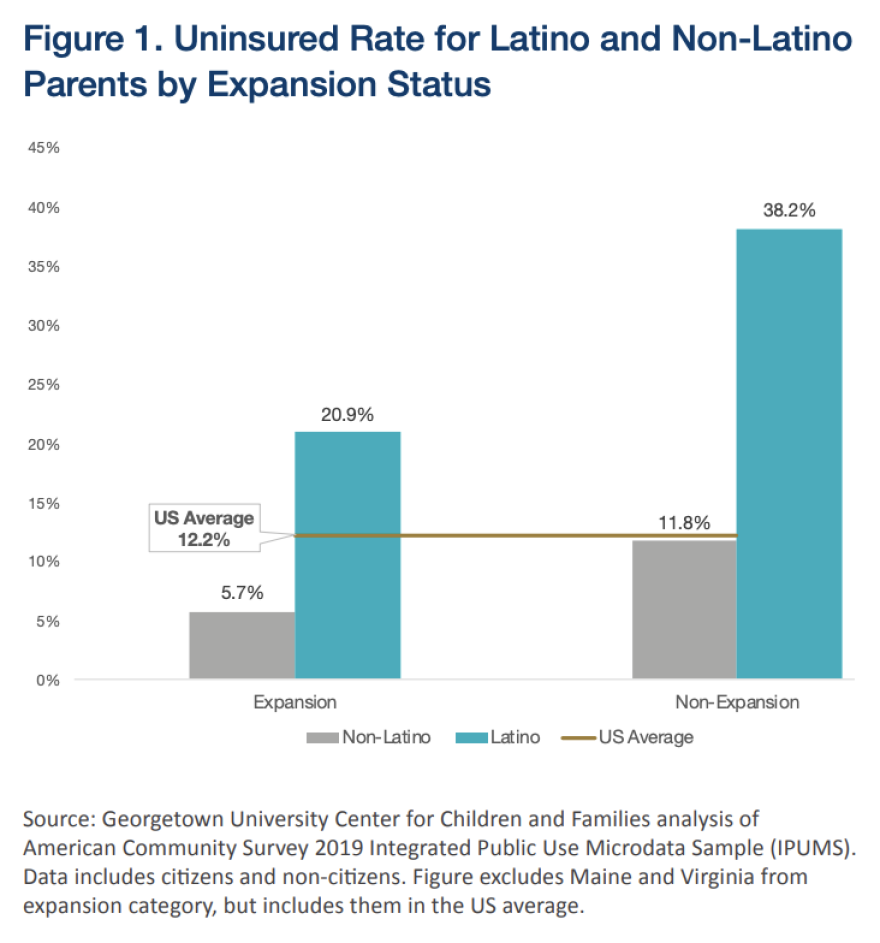Latino parents in states that have not expanded Medicaid to more low-income people are more likely to be uninsured than those in states that have expanded coverage, according to a new report from the Georgetown University Center for Children and Families and the nonprofit group UnidosUS.

“In Medicaid expansion states, the uninsured rate for Latino parents is 20.9 percent compared to 38.2 percent in non-expansion states,” researchers wrote.
Kelly Whitener, an associate research professor with the Center for Children and Families, said even though Medicaid covers adults, the trend is also true for Latino children.
Researchers found that Latino children in nonexpansion states are 2.5 times more likely to be uninsured than Latino children in states that have expanded coverage.
Coverage issues exist for children across the U.S., she said, "but they are wider in nonexpansion states and growing faster."

Texas is one of just 12 states that has not expanded Medicaid to more low-income people through the Affordable Care Act. Researchers found that about 41% of Latino parents in Texas are uninsured and almost 18% of Latino children here are uninsured. These rates are higher than in any other state in the country.
Without Medicaid expansion, Whitener said, a lot of working parents lack options for affordable health care insurance. She said Latino parents in low-wage industries are less likely to have employer-sponsored insurance.
The researchers said expanding Medicaid coverage would narrow disparities in health care coverage for Latino families.
“The COVID-19 pandemic has exposed and exacerbated longstanding health disparities for Latinos and other communities of color,” they wrote in the report. “As policymakers consider how to design a more equitable health system, Medicaid expansion is one key lever already at states’ disposal.”











